1. Videotaped interviews
2. Questionnaire
1. Introduction
2. Background Study
2.1 Research Hypotheses
3. Method
3.1. Linguistic and Social Variables
3.2 Subjects
3.3Data Collection and Data Analysis
4. Result
5. Conclusion and Implications
Chart3.
Gender
Neutral
Terms
Neutral Non
Neutral
Age between
20~30 Police Officer 8 2
Mail Carrier 2 8
Fire Fighter 5 5
Flight Attendant 6 4
Age between
40~60 Police Officer 7 3
Mail Carrier 2 8
Fire Fighter 4 6
Flight Attendant 5 5
Chart4.
occupation terms Neutral Non neutral
Student Police Officer 2 0
Mail Carrier 1 1
Fire Fighter 1 1
Flight Attendant 2 0
Teacher Police Officer 6 3
Mail Carrier 4 5
Fire Fighter 5 4
Flight Attendant 5 4
Military Police Officer 3 1
Mail Carrier 0 4
Fire Fighter 2 2
Flight Attendant 2 2
others Police Officer 4 1
Mail Carrier 2 3
Fire Fighter 2 3
Flight Attendant 1 4
4. Result
Based on our study we assumed that male and older people would use more non-neutral term. We defined one generation is about 20 years and that could cause the difference in the usage of words. So, our hypothesis was
1) Males who are in the age range of 40~60 will use less politically correct expressions than males that are in the age range of 20~40
2) Males would use less politically correct expressions than females
However, both of our hypotheses were rejected. It was very surprising and we tried to find the reason in the aspect of age, gender, occupation and familiarity to the terms. First, we analyzed our data by age and gender.
Figure1. Data analysis based on age and gender
According to the graph (figure 1), it is clearly shown that females in the age range of 40 to 60 use gender neutrals term to the least whereas males in the age range of 40 to 60 are apt to use more neutral terms than non neutral terms, which contradicts the premise of our hypothesis. We tried to find a reason for this result; we found in one of our references that education could be the reason. Because in the past, in- class activities and lectures emphasized the difference between the genders while now we concentrate more on the equality between men and women. As both of gender and age didn’t give us a clear explanation, we tried to find other factor that can explain our result and it was occupation.
Figure2. Data analysis based on occupation
As shown in the graph, teachers are more likely to use neutral terms than non-neutral terms whereas military official are more likely to use non-neutral terms than neutral terms. Based on this result, we learned that gender is social construct and schools are key institutions for the construction of gender. As Gender equity is emphasized nowadays and schools have begun to enforce gender equity by trying to downplay gender difference in classroom. As teacher mostly
■References
Coates, J. (1993). Women, men and language. New York City, NY: Longman Publishing.
Eckert P., & McConnell-Gient S. (2003). Language and gender. Cambridge University Press
Holmes, J., & Meyerhoff, M. (2003). The handbook of language and gender. Malden, MA : Blackwell.
Wardhaugh, R. (2006). An introduction to sociolinguistics (5th ed.). Malden, MA: Blackwell Publishers.

- 오늘 본 자료가 없습니다.
- 스트레스의 개념과 종류에 대해서 기술하고, 스트레스 예방 및 관리전략 방안에 대한 본인의 생각을 기술하시오
- [스페인 관광분석] 스페인의 성공요소 분석
- [영유아교수방법론] 영아기에 이중 언어를 제공 할 때 고려해야 하는 부분에 대해 긍정적 측면과 부정적 측변을 중심으로 고찰
- 스트레스에 대한 관리와 대처방법, 스트레스 관련 사례 분석, 스트레스에 의해 초래되는 증상, 스트레스의 개념, 스트레스의 원인 및 분류
- 사회복지실천기술론 - 1) 제시된 13가지 면담 기초기술에 대해 서술하세요 (의사소통기술, 언어적·비언어적 의사소통 기술, 질문 기술, 라포형성과 관계형성 기술, 공감 기술, 경청 기술, 명료화 기술, 요약 기술, 침묵활용, 바꿔말하기 기술, 초점유지 기술, 표현촉진 기술, 계약 기술) 2) 면담기초기술 중 6가지를 선택하고 각각의 예시를 들으세요 3) 라
- 노인학대 사례를 조사하고 노인학대 관련 처벌 및 예방대책에 대해 작성하시오
- 건강가정에 대한 자신의 생각을 정리하시오 즉, 자신이 생각하는 건강가정의 요소와 건강가정에 대한 견해를 정리하시오
- 사회화의 의미와 개념을 설명하고 사회화 담당기관의 역할을 설명하고 사회화 교육을 통한 기대효과에 대해 토론하시오
- 건강가정론] 현대 한국 사회의 변화와 함께 나타난 가족의 변화를 설명하고, 이와 함께 등장하고 있는 가족 다양성에 대한 자신의 견해를 논하시오
- 가족상담및가족치료] 가족 의사소통에 있어서 스마트폰 사용의 장점과 단점이 있다면 무엇이 있는지 서술하고, 그에 따른 대처방안들을 본인의 생각과 함께 토론하시오
해당 정보 및 게시물의 저작권과 기타 법적 책임은 자료 등록자에게 있습니다. 위 정보 및 게시물 내용의 불법적 이용,무단 전재·배포는 금지되어 있습니다. 저작권침해, 명예훼손 등 분쟁요소 발견 시 고객센터에 신고해 주시기 바랍니다.



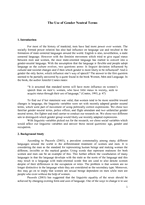
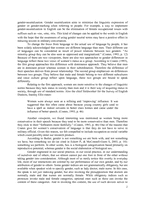
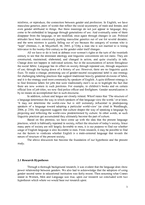
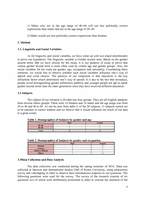
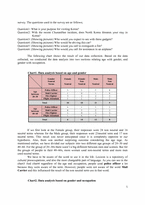

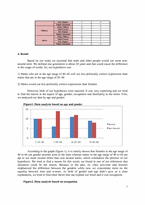

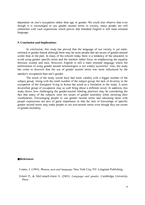
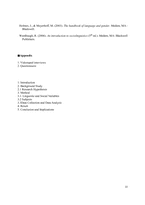
 분야
분야

